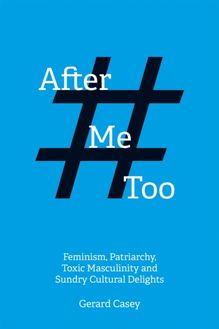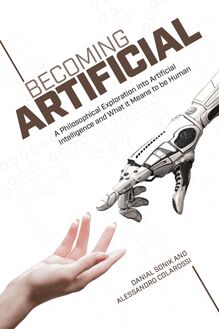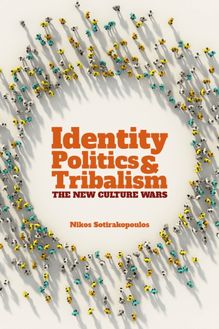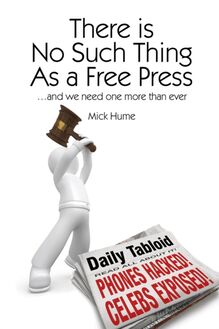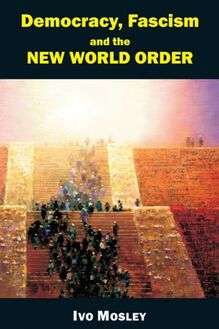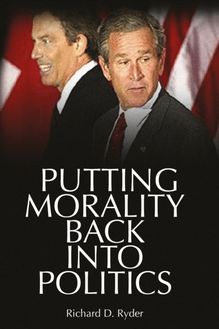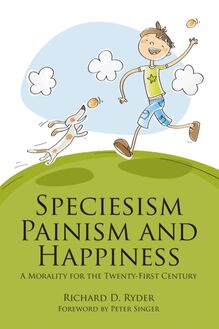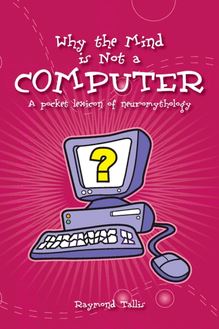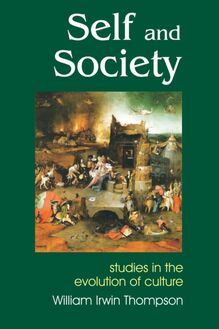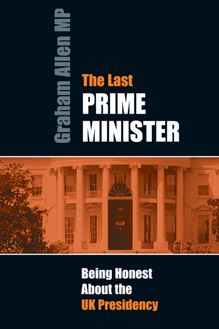-
 Univers
Univers
-
 Ebooks
Ebooks
-
 Livres audio
Livres audio
-
 Presse
Presse
-
 Podcasts
Podcasts
-
 BD
BD
-
 Documents
Documents
-
- Cours
- Révisions
- Ressources pédagogiques
- Sciences de l’éducation
- Manuels scolaires
- Langues
- Travaux de classe
- Annales de BEP
- Etudes supérieures
- Maternelle et primaire
- Fiches de lecture
- Orientation scolaire
- Méthodologie
- Corrigés de devoir
- Annales d’examens et concours
- Annales du bac
- Annales du brevet
- Rapports de stage
La lecture à portée de main
Vous pourrez modifier la taille du texte de cet ouvrage
Découvre YouScribe en t'inscrivant gratuitement
Je m'inscrisDécouvre YouScribe en t'inscrivant gratuitement
Je m'inscrisEn savoir plus
Vous pourrez modifier la taille du texte de cet ouvrage
En savoir plus

Description
Sujets
Informations
| Publié par | Andrews UK |
| Date de parution | 06 mars 2019 |
| Nombre de lectures | 0 |
| EAN13 | 9781788360050 |
| Langue | English |
| Poids de l'ouvrage | 2 Mo |
Informations légales : prix de location à la page 0,0550€. Cette information est donnée uniquement à titre indicatif conformément à la législation en vigueur.
Extrait
CULTURE WAR
Art, Identity Politics and Cultural Entryism
Alexander Adams
Introduction by
Theodore Dalrymple
Illustrated by the author
SOCIETAS
Essays in Political & Cultural Criticism
imprint-academic.com
Published in the UK by
Imprint Academic Ltd.
PO Box 200, Exeter
EX5 5YX, United Kingdom
www.imprint-academic.com
Digital edition converted and distributed by
Andrews UK Limited
www.andrewsuk.com
Copyright © 2019 Alexander Adams
The moral rights of the author have been asserted in accordance with the Copyright, Designs and Patents Act 1998.
All rights reserved. No part of this publication may be reproduced, stored in a retrieval system, or transmitted, in any form or by any means without the prior written permission of the publisher, nor be otherwise circulated in any form of binding or cover other than that in which it is published and without a similar condition being imposed on the subsequent purchaser. Any person who does so may be liable to criminal prosecution and civil claims for damages.
The views and opinions expressed herein belong to the author and do not necessarily reflect those of Imprint Academic or Andrews UK Limited.
ePub ISBN - 9781788360050
PDF ISBN - 9781788360067
Print ISBN - 9781845409982
A CIP catalogue record for this book is available from the British Library and US Library of Congress
By the Same Author
Verse
Three Strikes (2011)
Seahorse (2013)
The Crows of Berlin (2013)
On Dead Mountain (2015)
On Art (2018)
Fiction
Letter About Spain (2016)
Berlin, October (2016)
London, Winter (2017)
Selima in the Orchard (2018)
Art
Works on Paper (2004)
Noctes (2005)
Icarus (2005)
Ruins and Landscapes (2007)
Paintings on Paper (2008)
New Gouaches (2010)
Portraiture (2013)
Nouvelles Peintures (2018)
About Footnotes/Endnotes
To ensure the best possible experience for readers, the author’s original endnotes have been converted into footnotes for this eBook edition. The author introduced the original endnotes section with the following text:
When compiling these endnotes I had to balance the value of noting specific sources with the worthlessness of providing links to ephemeral social-media posts, videos and online articles on the internet which will soon become inaccessible. I have refrained from listing all sources, especially regarding Comicsgate, which I followed daily over many months as it occurred. My overall thesis is—as far as I know—original and developed in my own way, though some of my observations doubtless echo comments made by others. I have tried to note originators of ideas whenever I have remembered them. To those I unintentionally omitted go my sincerest apologies.
Introduction
Theodore Dalrymple
Like many people, I thought that with the downfall of the Soviet Union there would be an end to ideological ways of thinking. How wrong, how naïve, we all were! Far from disappearing, ideological ways of thinking have proliferated, Balkanised so to speak. Various groups of ruthless monomaniacs now seek to impose their views on and of the world, accepting no discussion, let alone dissent. They seek to reinterpret everything through the monocular lens of their own obsession, and make the rest of us do likewise. Their influence is out of all proportion to their numbers: their numbers for now, that is..
It must be admitted that resistance to the bullying and name-calling of these monomaniac groups has been extremely feeble. At first their arguments seem so absurd that they are hardly worth arguing against; then, once they have succeeded in recruiting enough of the bien pensant intelligentsia to their cause, it is too late. What might have seemed unthinkable only a few years before has been transformed into an unassailable orthodoxy to question which is heresy at best, a sign of moral depravity at worst.
One might have supposed, or at least hoped, that the visual arts would be relatively immune from the attentions of the monomaniacs. This, alas, is far from the case. We are, or were, accustomed to thinking of art as a relatively autonomous field of human endeavour, with its own standards of comparison and criteria of worth, albeit that our appreciation and understanding might be deepened by an understanding of the historical, cultural and economic context in which a work of art was produced.
But such relative autonomy has yielded with surprising speed to the ideological obsessions of race, class and sex, with predictably deleterious effects. Nothing epitomises the complete degeneration of our artistic life better or more succinctly than the appointment of Maria Balshaw as Director of the Tate Gallery, with her complete mastery of publicly-funded, ideologically-flavoured arts-apparatchik drivel. If anyone supposes that I exaggerate, I suggest that they consider Dr Balshaw’s statement: “I think taking large artistic risks is part of the job of a good director of any arts organisation. If I think back to moments where I experienced that as a really acute and intense feeling of fear and even horror at the level of risk that we were taking as an organisation, it boils down to an experience of watching a really marvellous artist, Kira O’Reilly, rolling very slowly down the stone stairs of the Whitworth Art Gallery.” [1] Even worse, consider her speech at Hampton Court Palace, 16 October 2017. [2]
In this book of crystal-clear essays, which I am sad to say must have taken some courage to write, Alexander Adams, an artist, art critic and essayist, dissects, and one might say eviscerates, the doctrinal obsessions of our time that are so inimical to appreciation of art or true artistic endeavour. He does not prescribe what art must or must not be; or what artists must or must not believe in order to be good artists; he has no positive doctrine to propose. What he is against is the deeply impoverishing orthodoxies that (if I may for a moment be slightly Marxist) serve the interests of a bureaucratic elite that is talentless in everything except the search for power. What he writes has implications for fields other than art; but for anyone who cares for the visual arts in this country, his book is essential reading. The realisation of what is happening is the beginning of recovery, or at least an essential precondition of it.
1 Video interview, 10 June 2014, https://www.youtube.com/watch?v=MPaJueG2NPc [retrieved 2 August 2018].
2 Speech, 16 October 2017, https://www.youtube.com/watch?v=bC_29j-_sRU [retrieved 2 August 2018].
Foreword
The first five essays in this collection were written independently and published separately. At the time of writing, I did not see them as connected in any way other than that they covered aspects of politics in current culture, although “On the Western Canon” was an expansion upon the discussion of why there is a drive to undermine the Western canon by Marxists and allied movements (most obviously by feminists), a subject which had come up in the discussion of remedial arts programming in the preceding essay, “On Quota Programming”. “On Reparations” (the fifth and last independent essay) was written in the knowledge that it would be included in this collection. The sixth and seventh essays were written for this book.
Rather than reshaping this material into a single text, I have kept the essays discrete, largely in their originally published forms and presented in the order in which they were written. There seemed merit in allowing the reader to see the writer gradually discovering how seemingly unrelated aspects of culture were actually deeply connected and discovering those things along with him. Subjects are examined separately in the first five essays; two final essays investigate in greater detail what motivates those involved in identity politics and how those individuals seek to influence culture through a practice I define as “cultural entryism”.
I should stress that although the main focus of this book is leftist [3] activism within the arts, many of my observations apply to authoritarian idealism of the far right and—to a lesser extent—religious extremists. (The left–right political axis is discussed in “On Identity Politics”.) I see most value in discussing leftist activism in culture because it is currently the most prominent and widespread type of cultural activism in the West. Moreover, this activism goes largely unacknowledged and unchallenged by liberals, political moderates and the unaffiliated, so it seems particularly important to draw to the attention of these groups exactly how destructive this activism is. Activists and the majority of the population consider this activism (when they notice it at all) to be motivated by good intentions and producing good outcomes. The truth is that much of the ideology is brutally dehumanising, the actions motivated by vanity and the outcomes often cruelly damaging. I understand many readers will receive this conclusion with anger and denial. To conclude that leftist activism in the arts is benign or beneficial would have been a great comfort to me, given how powerful and pervasive it is, yet after considerable thought I cannot reach that conclusion.
August 2018
3 The term “leftist” covers adherents to the far left (Marxism, neo-Marxism, socialism, communism and variants), intersectional third-wave feminists (see the section “Identarianism” of the essay “On Quota Programming”) and radical feminists (feminists who view patriarchy as endemic to Western civilisation and seek to effect extreme social change to combat it); also
-
 Univers
Univers
-
 Ebooks
Ebooks
-
 Livres audio
Livres audio
-
 Presse
Presse
-
 Podcasts
Podcasts
-
 BD
BD
-
 Documents
Documents
-
Jeunesse
-
Littérature
-
Ressources professionnelles
-
Santé et bien-être
-
Savoirs
-
Education
-
Loisirs et hobbies
-
Art, musique et cinéma
-
Actualité et débat de société
-
Jeunesse
-
Littérature
-
Ressources professionnelles
-
Santé et bien-être
-
Savoirs
-
Education
-
Loisirs et hobbies
-
Art, musique et cinéma
-
Actualité et débat de société
-
Actualités
-
Lifestyle
-
Presse jeunesse
-
Presse professionnelle
-
Pratique
-
Presse sportive
-
Presse internationale
-
Culture & Médias
-
Action et Aventures
-
Science-fiction et Fantasy
-
Société
-
Jeunesse
-
Littérature
-
Ressources professionnelles
-
Santé et bien-être
-
Savoirs
-
Education
-
Loisirs et hobbies
-
Art, musique et cinéma
-
Actualité et débat de société
- Cours
- Révisions
- Ressources pédagogiques
- Sciences de l’éducation
- Manuels scolaires
- Langues
- Travaux de classe
- Annales de BEP
- Etudes supérieures
- Maternelle et primaire
- Fiches de lecture
- Orientation scolaire
- Méthodologie
- Corrigés de devoir
- Annales d’examens et concours
- Annales du bac
- Annales du brevet
- Rapports de stage
